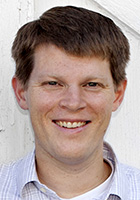cleveland 2030 district aims to reduce downtown buildings' carbon footprint

Energy efficiency is no longer simply an option for tenants seeking office space downtown, says Donald Rerko of ka Architecture Inc., one of Cleveland's leading sustainability-minded architecture firms. Instead, it's often a critical "go/no go" decision-making factor that can make or break a deal.
"Tenants want sustainable buildings, and they'll often take the building off their list if it's not energy-efficient," he says. "It's really at the top of their criteria."
Rerko is Chairman of the Cleveland 2030 District, an effort to make downtown office buildings carbon neutral by the year 2030. The group emerged out of the first Sustainable Cleveland 2019 conference and has aligned itself with Architecture 2030, a national group with similar goals. Rerko says the group has targeted 75 million square feet of downtown office space, and has gained soft commitments from 25 percent of owners to make their buildings green.
"Retrofitting a building saves the owner on utility costs, reduces tenants' overall costs and makes the building more competitive," says Rerko. "There are a lot of different funding programs now, such as performance contracting and government programs, that allow owners to retrofit without any money out of pocket."
Comprehensive building retrofits typically include sealing the envelope to reduce energy consumption as much as possible, examining energy usage to find ways to reduce it, automating systems, and investing in renewable energy sources.
As examples of successful retrofits, Mohr cites Cleveland State University, Cuyahoga Community College and Forest City Enterprises, which has made substantial energy-efficiency improvements to the Tower City complex.
Next steps for the Cleveland 2030 District group include obtaining signed letters from owners representing their commitments and raising funds to hire an Executive Director and Program Manager. The group is also holding a kickoff party on May 10th at the Cleveland Museum of Natural History. It will feature keynote speaker Edward Mazria, architect and founder of Architecture 2030.
Source: Donald Rerko
Writer: Lee Chilcote

